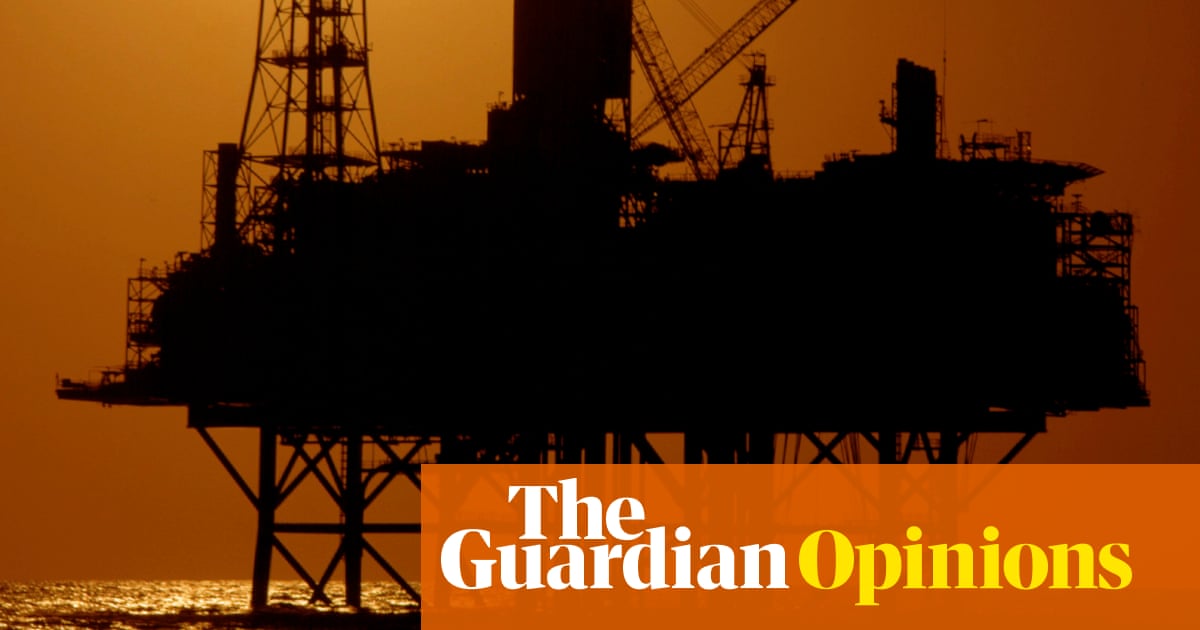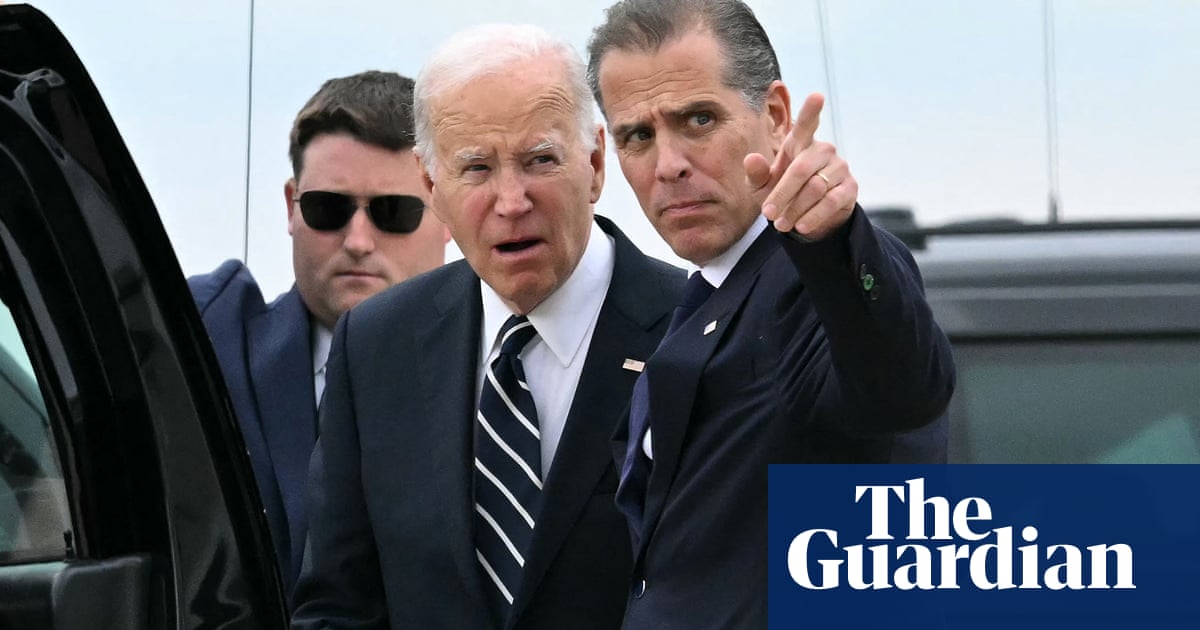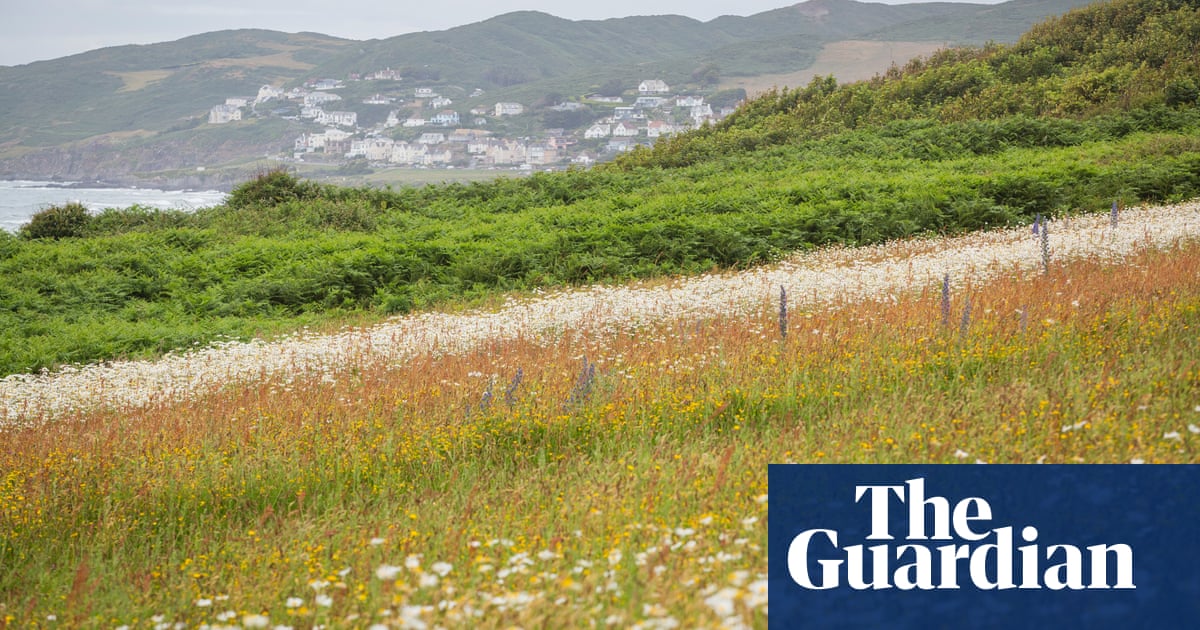Australia’s south-west is suffering through a historic dry stretch. Perth had the lowest rainfall on record in the six months to March, and trees in eucalyptus forests and scrubland across a 1,000 kilometre stretch are dying in shocking and spectacular fashion, with spillover effects through the ecosystems that rely on them.
The climate signal – the impact of rising atmospheric greenhouse gases, largely due to the burning of fossil fuels – in this part of the world has been clear for a while. Winter rainfall has fallen up to 20% since the 1970s in what scientists have for years described as one of the earliest examples of the climate crisis having a measurable influence.
This was one of the backdrops as Woodside Energy – Australia’s biggest oil and gas company, with multi-billion dollar developments in the works at home and in Africa and the Gulf of Mexico – held its annual general meeting in the Western Australian capital last week.
Across four hours, Woodside’s chairman, Richard Goyder, and chief executive, Meg O’Neill, made the company’s case and took questions from shareholders and their proxies. Many related to climate change.
A handful of the shareholders couldn’t understand what the fuss was about, argued CO2 from burning fossil fuels was airborne plant food and called the climate-concerned idiots.
But the overwhelming sentiment from investors was that the company was failing to address their concerns, and not living up to its rhetoric that it aimed to have net zero emissions by 2050. They lodged a 58% protest vote against Woodside’s climate report, the strongest against a listed company anywhere across the globe.
It was a remarkable result, reached after a concerted campaign by shareholder activist groups, and public rebukes by global pension and Australian super funds. Goyder, who has had a torrid recent time as the chair of both Woodside and Qantas, ended the meeting by saying the company took the non-binding feedback seriously, and would consider it as it reviewed its approach to climate change.
They were the words he had to say after an embarrassing slap down, but there was little else at the meeting to back them up. The message was internally contradictory. On the one hand: we’re listening, we hear you and we’re open to change. But also: we reject what you say. And we have some giant fossil fuel developments to be getting on with so we can reward your financial investment.
Standard 21st century operating procedure for a fossil fuel company, in other words.
The disconnect between Woodside’s rhetoric and climate reality echoed throughout the AGM, but crystallised in a few moments. Some were throwaway – Goyder saying it was good to have a question “on the business” when discussion veered away from the ecological impact of its operations – but others were more telling.
One shareholder, referring to the state’s drought, asked whether 2.7m seedlings the company planted in the state last year to offset some of its emissions had survived. Another asked if Woodside believed it had moral and financial culpability for the impact of the climate crisis on local farmers.
Goyder acknowledged the underlying issue – “It’d be nice to get some rain in the agricultural regions of Western Australia sooner rather than later” – but said it was “a pretty long bow” to consider Woodside “responsible for the climate conditions in the agricultural parts of Western Australia”, and “nonsense” to even suggest it might be given the scale of global emissions.
On one level, this is just a truism. Woodside is not uniquely or solely responsible for the growing force of climate change being felt in the state. No one suggests it is.
On another level, it is an argument about responsibility that would not pass muster in most other walks of life. You’re only part of the cause of the problem? Ah well, keep doing more of that then.
This is, of course, the climate conundrum. The problem can be solved only if everyone, or nearly everyone, does their bit. China is often singled out as a climate villain, and not without cause. But even if it stopped polluting tomorrow that would leave about two-thirds of carbon pollution unaddressed.
Not everyone is equally responsible to make rapid and immediate emissions cuts and to help others to do the same. But it’s been widely agreed that those who are responsible to act now include (a) the wealthy and (b) polluters working in areas where there are viable and affordable zero-emissions alternatives. It should shock no one to learn an Australian oil and gas company qualifies on both counts.
Woodside’s response is to claim it is acting, mainly by paying for some carbon offsets to put a dent in its direct emissions. But when Bill Hare, a scientist and head of the global consultancy Climate Analytics, asked the company to justify its claim that its plans align with the goals of the landmark Paris agreement, Goyder and O’Neill had no answer, other than to assert that it did.
The hole in the argument was so great, and so obvious, that a majority of voting shareholders felt they could not be seen to take it seriously. That hasn’t happened before. It shows the shift in sentiment in the investment community.
But we shouldn’t get carried away. The pension and super funds still overwhelmingly backed in Goyder as chair, returning him with only 16% voting against. A cynic might say they scolded the company over its climate stance at zero cost while backing the existing management to continue to keep delivering fossil-fuel powered dividends.
Out in the real world, the climate crisis comes in a rush, whether it is flooding in the Dubai desert, heatwaves shutting schools and upending lives across southern Asia, continent-sized sea ice loss in Antarctica, or record mass coral bleaching on the Great Barrier Reef. Boardroom change is a slower operation.
What happens from here? Goyder said he and the company’s investor relations team have already held more than 150 meetings with investors over their climate concerns. Presumably there are more to come. But Woodside still plans to spend $18bn on fossil fuel projects over the next five years.
The circle can’t be squared while it remains wedded to the self-interested line that gas – the largest source of fossil fuel emissions growth last decade – is a climate solution. But the AGM shows that argument is increasingly exposed, and the push against it isn’t going away.



